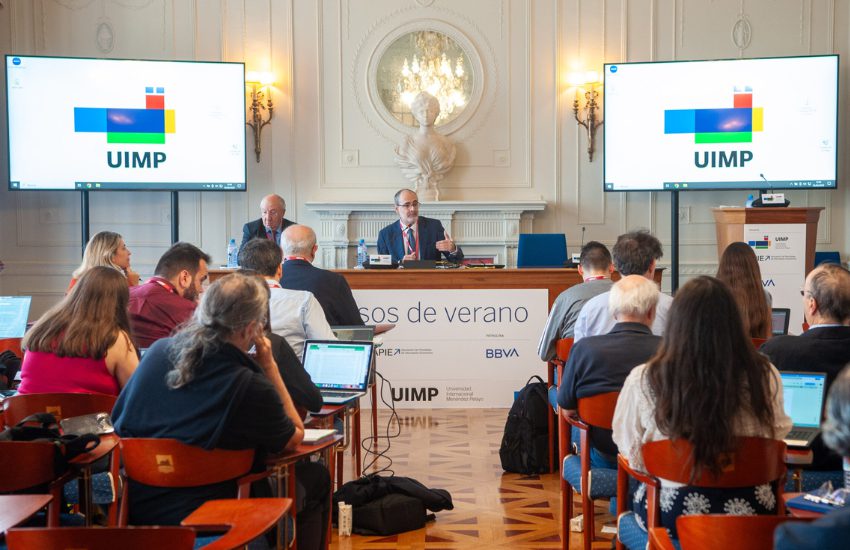Antonio Romero spoke at the 42nd APIE Seminar: Forty years of Spain in the EU. Evolution of the Spanish economy. From autarchy to a market economy, hosted by Menéndez Pelayo International University (UIMP)
CECA's CEO called for regulatory and supervisory simplification to make the Spanish and European banking industry more competitive and thus enhance its role as a driver of economic growth
Antonio Romero, CECA's new CEO, attended the 42nd APIE Seminar, Forty years of Spain in the EU. Evolution of the Spanish economy. From autarchy to market economy, hosted by UIMP, at which he underscored the strength of the Spanish banking industry as seen in its high levels of profitability and efficiency. This robust performance has allowed CECA to step up its investment in community welfare projects, which stood at €906 million in 2024, and thus remain the leading private social investor in Spain.
This position of strength will enable the Spanish banking industry to confidently address the challenges it currently faces. The first is the uncertainty arising from new geopolitical risks. Romero pointed out that these risks are distinct from the traditional ones in the sector and, therefore, supervisors should not tackle them through a capital increase. "We need to shift away from the current capitalocentrism and replace it with governance measures," Romero argued.
Regulatory simplification
CECA's CEO advocated lessening the excessive regulatory and supervisory burden on the industry: "The plethora of regulatory developments in the financial industry, coupled with heightened supervisory scrutiny, has led to an increasingly complex and costly compliance model for credit institutions." Over the last five years, regulatory action has averaged 1.3 rules per working day targeting the financial sector.
Romero pointed out that regulatory simplification should go hand in hand with an overhaul of legislative processes because at present they encourage complexity. "Otherwise we will have to go through this simplification exercise again in a few years' time, regardless of how successful the current process is," he said.
Digital euro
The digital euro was another big issue. Here, he noted the industry's constructive role in building the theoretical model of this new digital currency through its involvement in the working groups set up by the ECB and its input into the design of the regulatory framework. Nevertheless, he identified a number of issues to be taken into consideration, such as implementation costs and the availability of private projects which will deliver pan-European payment services solutions.








